By Lexus Yamashiro | Staff Writer
After serving as KCC’s vice chancellor for Student Affairs (VCSA) since December 2014, Brenda Ivelisse’s last day on campus will be on Wednesday as she will be moving on to become the associate vice president for Student Affairs at Bellevue College in Bellevue, Wash.
Ivelisse looked back on her experiences, addressing the accomplishments, hardships, and highlights that she experienced with the students, faculty, staff, and administrators who make up KCC.
(Video by Nicole Fernandez and James Flynn)
[Editor’s note: This interview has been lightly edited for clarity and length.]
In December 2014 you became the vice chancellor for Student Affairs. Lexus Yamashiro: What had driven you to take up this leadership position and what kind of an impact were you hoping you’d make on those who make up KCC?
Brenda Ivelisse: I was really drawn to KCC for the mission and vision and the values. I was finishing up my doctorate degree [in community college leadership at Oregon State University] and was looking for some positions that I felt connected to and I felt made sense professionally and personally, and KCC just kind of married the two things together. I felt, personally, I valued the values that KCC has. … I valued the mission and the vision that KCC has, its people, the students that we serve — it’s an indigenous-serving institution and that really drew me to it — so that’s what drew me to KCC.
As far as what I wanted to do, I wanted to make an impact where Student Affairs was elevated on campus that people were aware that we are a service that is here to support faculty, staff, and students and administrators, but mostly at the forefront is that students come first and that we would … pull together the team to continue with that. Before me, there was Mona Lee, who was the vice chancellor for Student Affairs, and she served in this capacity for about 20 years, so I had some big shoes to fill. I wanted to continue her legacy and continue putting the students as priority.
Yamashiro: You mentioned that one of your biggest priorities as VCSA is addressing the student body of KCC. How have you been able to work around that to ensure that students get the support and services that they need?
Ivelisse: So for me, I believe if I support my staff, if I support my team so that it’d create the best experience for them, they’re going to support the students the best way they can. So my role is to remove any barriers that exist in order for my team, in order for them to provide students the best services that they need and want. That is the role I feel as a servant leader, as the type of leadership style I subscribe to where I literally roll up my sleeves and it’s like “OK, let’s get to work.” So that’s one of the things that I have been able to do with my team is support them and make them thrive and then in that aspect having students thrive as well.
I do another thing called walkabout leadership, which is where you’ll see me around campus talking to students, checking in on the team, getting to know students. I want to be able to be that face for students in the sense of letting them know I’m available, I’m here to talk story with you, how can I help you; that’s usually the first thing students will hear from me.
Yamashiro: Since becoming VCSA, what goals were you able to achieve that have made a difference at KCC?
Ivelisse: Oh my goodness, we’ve done a lot of things. So, one of the things that we’ve done is we stabilized the budget for Student Affairs. So it used to be all centralized within the VCSA’s office, and it still is to some degree, but I had to approve every single purchase and what I ended up doing is working with the different coordinators.
We have a leadership team called the Student Affairs Leadership Team (SALT), and each of the coordinators of the different programs, there’s about 17 departments within Student Affairs here at KCC, each got a portion of some of the funding. Before we used to run in the deficit and now we actually are doing pretty good. I have a zero-balance philosophy, so that means if we get a dollar from the state, we’re going to spend a dollar. We’re not going to spend 98 cents, we’re not going to spend a $1.01 or $1.02, we’re going to spend that dollar. So that was something I’m pretty proud of that we got to stabilize our budget.
The second thing that we’ve done that’s pretty exciting is that I was able to secure the Kīkaha o Laeʻahi Student Center [on the second floor of ʻIliahi above Subway] … so what we did was we took the different programs that were across the campus in different locations that serve first-year students, traditional first-year students, and put it into one building, and we were able to make a case with the chancellor at the time the importance of having those services altogether. And that’s created the space called Kīkaha o Laeʻahi where last year, I believe in the first four weeks of the semester, we had over 12,000 visitors to that space. They’re duplicate numbers because students will come in and out, but it does say that the space is used a lot and the concept of it is working really well.
So we have the Native Hawaiian student program (Kapoʻoloku), we have first-year experience there, we have Pāhihi, which is our new returning adults program. … We have a partnership with sustainability so they’re up there as well, and we have a partnership with the program called HINET and they’re up there as well. So we’ve done some pretty fantastic things with that space. We’ve squeezed a lot of people in there, but they’ve worked wonders in just partnerships, and then for students. The great thing is that they now have a student center; they have a place that they can go to that functions and as a semi-student union on campus because of the programs that we offer.
Downstairs from Kīkaha, the center I can’t think of the name of that everyone says “by Subway,” is the Student Activities Center. We also were able to pull in all the chartered student organizations so Student Congress, BOSA, BOSP, Kapiʻo News, we did the media lab, all that was brought together. I was able to advocate for space and get folks into those key areas. What I wanted to do and what I was envisioning was a space for students that’s active and that’s exactly what it is. I mean you can go into that space and there’s always tons of students either playing pool or studying or just having their lunch or having some coffee or sleeping on the sofas, and that I think is beautiful. I think to be able to sleep somewhere and feel safe is really important. So I don’t mind that students sleep on the sofas, I want them to feel comfortable and safe at KCC.
And so that’s one of the initiatives that we did. We also were able to create a veterans resource center. We did a lot of kind of moving people around to give them the maximum amount of space possible and so the veterans center was another space we were able to secure for the military and veteran students on campus.
Were there any challenges that you have faced that still have yet to be addressed or have already been overcome?
Well the biggest challenge was the budget, I mean we were running in the red by a significant amount of money. I can’t remember off the top of my head how much it is but a pretty significant amount so I think that was the biggest challenge. The challenge is space was an issue ’cause space is a premium here at KCC. So slowly, but surely, we’ve been able to chip away at the different challenges that present at themselves for us and Student Affairs. One of the other things I’m proud of is that we were able to do the students of concern and student conduct process, put that all online so that students and faculty and staff can submit a student of concern, or if there’s misconduct submit a form online.
… And again, to make it accessible to all students, it used to be that you had to come to this office to submit things and we’ve gone around campus talking with faculty and staff and students about what the process is and we have to do it on a regular basis so that they know there’s resources on campus. So I don’t know if you’ve ever noticed, there’s an email at the beginning of the semester where I’ll list different resources for students. So again, trying to hit students in different ways so that they get that our office is here to serve them.
The other thing we started doing … we started texting students important dates like remembering to register, remembering to see their advisor, remember to self-care, those kinds of things, and we’re mindful about how many texts that we send out, but it’s a way to communicate with students that we found that has become pretty effective.
Aside from the difficulties that came with being the VCSA, what are some of the best highlights you were able to experience over the years?
The best highlights, I always remember them as being with students. You know, I think about the Zane’s [Zane Williams, a KCC student and Lunalilo Peer Mentor] of the world, I think about you, I think about all these student leaders that are involved … those are the highlights when we get to laugh and high-five each other and be like “Yes! You’ve made it through the semester, you’ve done really well.”
Or (if) a student is struggling and finally feels like they’re in a better place, and that’s what our office is about, is about getting students to a better place and helping them achieve that, whatever that better place is for them. So we help students through scholarships, we help students through advocacy, we help students through just talking story with them, we help students by connecting them to resources; we help students in a lot of different ways.
Having served as VCSA for the past four years, what are you most proud about KCC?
What am I most proud of? I’ll be redundant but I’m proud of the students. I’m proud of the faculty and staff here. There’s so much dedication and commitment to the success of our students and I can say that without hesitation. I’m proud of the administrators I work with, who work tirelessly to support our faculty and staff. I’m just proud of the people that we serve and I’m lucky enough to work with.
As you leave KCC, are there any areas within the college that you believe needs to be more developed or is lacking?
You know, there’s always room for improvement and so we’re continuing to improve our own programs within Student Affairs. So whether it’s first-year experience or whether it’s student activities, student leadership, there’s always room for improvement. So I think as I leave KCC, I think I believe wholeheartedly that I’m leaving Student Affairs in a really good spot and the next vice chancellor for Student Affairs will be able to pick it up and kind of put their signature on the office and what we do but I think the infrastructure that was needed before has been set up nicely for them and I wish them the very best. I think they’ll be very lucky to work with the team that we have. They’re really amazing people, they really are.
What would you like to see happening on campus in the future?
I want to see more student life, I want to see more student activities; that’s what I would love to see. I think we do really well with the ice cream socials, I saw the puppies outside [on March 6], Kapiʻo News is thriving — I’m a big fan of Kapiʻo News, can you tell? I’m always liking the stories — but that continued commitment of students to serve the college, I would love to see that continue to grow.
So if we can get more students involved, that’s great. More clubs, any interest that students have, we can create a club out of it. So just getting more involved on campus, finding ways to do that whether it’s through tutoring, whether it’s through an academic program and research, whether it’s student activities; I just would love to see more students involved on campus.
Being that your role as VCSA meant serving and supporting the students of KCC, what message do you have for them as they continue and eventually wrap up their educational journey here?
I think the message I have for students is — and those that support students — continue to work hard, continue to serve this community that we all love. For me, I don’t know if you’ve heard of the saying, but “beloved community.” It really is a beloved community, and that’s why I was saying earlier it’s so great the faculty and staff and administrators and students that are here, they’re just so wonderful to work with and to serve that the “can do” attitude will take you very far. I can do it and that we’re here to support you and celebrate all those accomplishments that you have and are going to have and that we truly believe in you.

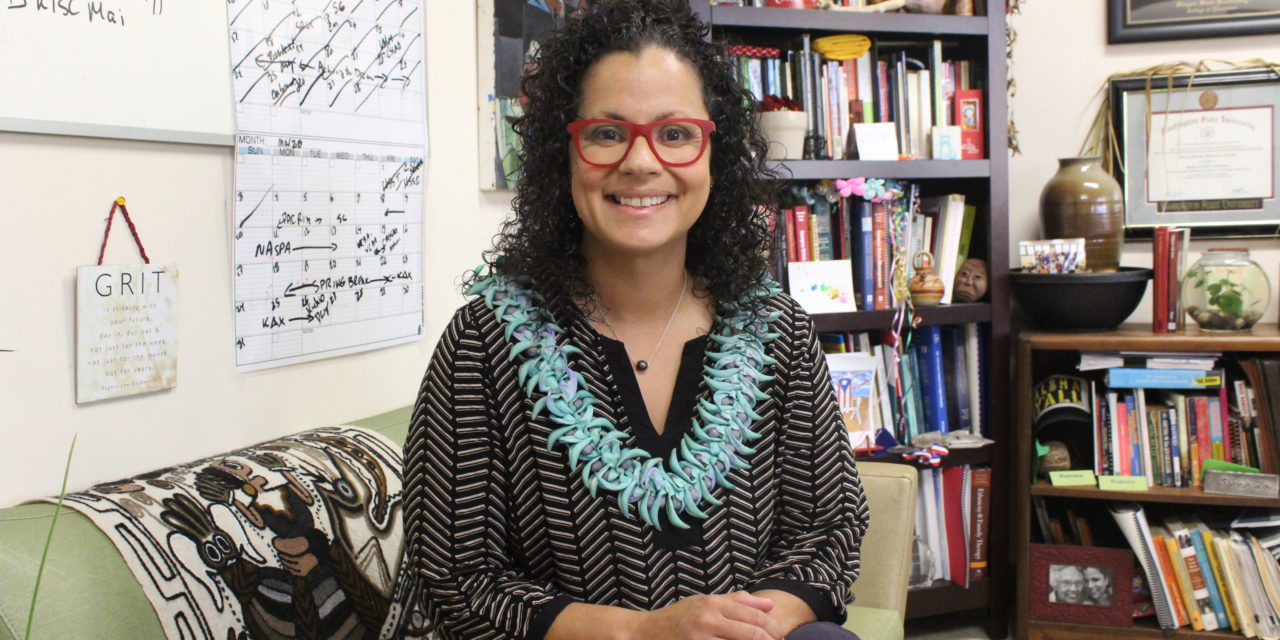
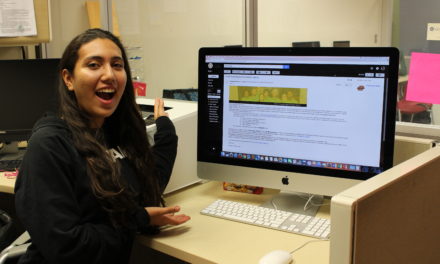
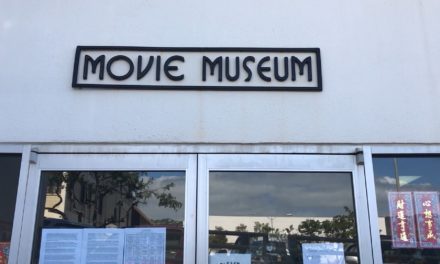
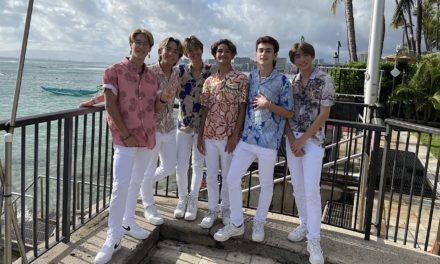
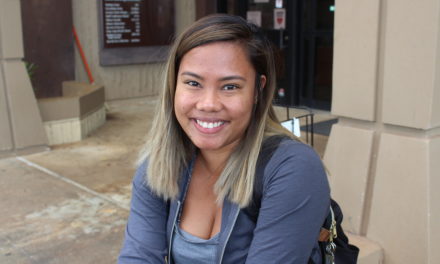
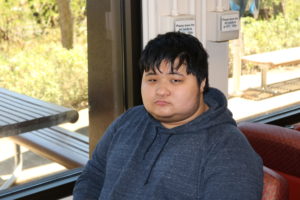
You let us down VCSA Brenda Ivelisse. Where is the book instructor David Brown borrowed (stolen) from me before the culinary department kicked me out of culinary. I have been waiting for two spring breaks. Where is my book? You are clueless about what goes on in the classroom.